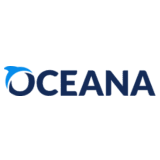The U.S. falls short on transparency at sea, lagging behind the European Union and other countries with regard to the requirements for fishing vessels, according to a report released by international ocean advocacy group Oceana. Oceana says this analysis reinforces the need for the U.S. government to expand regulations and require more fishing vessels to use public tracking devices.
According to the report:
AIS is an inexpensive, easy-to-implement technology, and it should be required on more U.S. fishing vessels and the United States should require similar transparency of seafood imports. Expanding transparency will help bring to light suspicious behaviors, protect our ocean habitats and wildlife, and discourage illicit activity like illegal fishing and human rights abuses.
Key findings:
- Only 12% of the more than 19,000 commercial fishing vessels registered in the U.S. fleet are required to carry AIS devices.
- Expanding the requirement in the United States to vessels 49 feet and over would increase AIS usage by 65%, covering more than 1,500 additional fishing vessels.
Read the complete article and download the report here.
Better Data drives Better Decisions. Shine Micro: Receive Better.
Stephanie Nevarez
Marketing Manager
Shine Micro, Inc.
360-437-2503 phone
360-437-2483 fax
snevarez@shinemicro.com

Oceana
Oceana is an international organization focused solely on oceans, dedicated to achieving measurable change by conducting specific, science-based policy campaigns with fixed deadlines and articulated goals.
SHINE MICRO
Shine Micro is the pioneer of high-sensitivity AIS receivers for long-range, real-time, persistent monitoring and vessel tracking. From the United States Coast Guard (USCG) Nationwide Automatic Identification System (NAIS) to the invention and patent of Class B AIS transmission protocol (CSTDMA), Shine Micro specializes in innovation and optimization of AIS, including VHF technology for Exclusive Economic Zone (EEZ) monitoring and Small Vessel Tracking (SVT).


